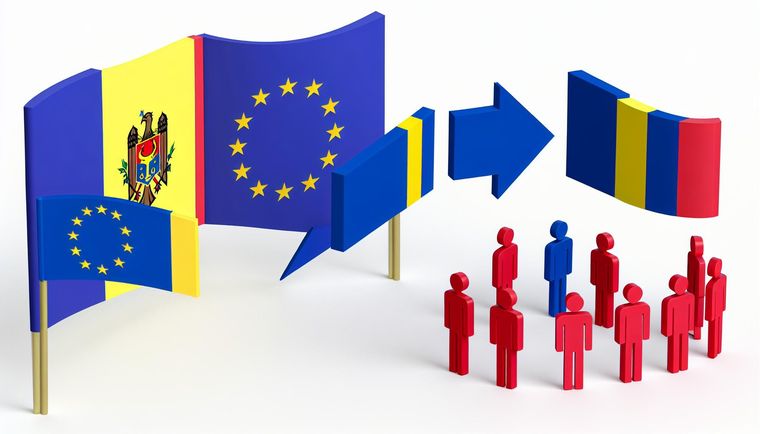Setback for Pro-European Agenda in Moldova: Citizens Reject EU Membership in Controversial Referendum

The Republic of Moldova is facing a significant challenge to its pro-European aspirations as citizens have reportedly voted against enshrining European Union membership into the constitution during a recent referendum. Initial results show that approximately 55 percent of voters were opposed while about 45 percent supported the proposal. The referendum took place alongside presidential elections, where incumbent President Maia Sandu held a narrow lead over her pro-Russian opponent, Alexandr Stoianoglo.
With nearly 80 percent of the ballots counted from the referendum, the opposition vote came as a surprise, given Sandu's prior assertions of increased public support for EU integration. Sandu, who has been a vocal advocate for Moldova's alignment with Europe, cautioned that the referendum results would have lasting implications on the nation's future. "Our vote in the referendum will determine our fate for many decades to come," she told her supporters, emphasizing the importance of the choice at hand.
As votes continued to be tallied from the presidential election, Sandu secured approximately 36.5 percent of the votes compared to Stoianoglo's 29 percent, a performance that surpassed pre-election predictions of a clear victory for Sandu. If the current trends hold, Stoianoglo could gain momentum leading into a potential runoff set for November 3.
Moldova's ongoing struggle for identity and political alignment places it in a unique and precarious situation. Since the dissolution of the Soviet Union in 1991, the country has oscillated between pro-Western and pro-Russian political directions. This latest voting event reflects these divisions, as both the European Union and Russia vie for influence over the small, economically challenged nation.
The Kremlin’s involvement in Moldova's internal affairs has been a persistent concern. Olga Rosca, an advisor to Sandu, accused Moscow of spending substantial resources—over 100 million euros—on efforts deemed designed to destabilize Moldova's political landscape and hinder its path towards EU membership. Such allegations, denied by Russian officials, ignite further tension between the two spheres of influence.
In an effort to appeal to expatriates, Moldovan officials also encouraged voting participation from hundreds of thousands of Moldovans living abroad, including those residing in the breakaway region of Transnistria, which is under Russian control.
The outcome of the referendum, coupled with the tight race in the presidential election, raises questions about the future trajectory of Moldova's governance. As the country grapples with these electoral outcomes, the implications for its foreign policy orientation remain profound. Will Moldova continue to pursue its pro-European agenda amid dissenting voices, or will it find itself drawn back into the sphere of Russian influence? The coming weeks will be crucial in shaping the landscape for one of Europe’s most vulnerable nations.
Related Sources:
